Jan-Philipp Bach, MD

Mechanisms of action of immunoglobulins in Alzheimer's disease
Immunoglobulins (IVIg) contain naturally occurring autoantibodies thought to be essential for their mechanism of action in a variety of diseases. Recently, IVIg have been successfully applied in pilot studies in patients with Alzheimer's disease (AD). However, data regarding specific mechanisms of action in AD are scarce. In addition, not much is known about the role of naturally occurring autoantibodies (nAbs) in this disorder. Recently, our group and others have identified naturally occurring autoantibodies against Aß (nAbs-Aß) which are significantly reduced in patients suffering from Alzheimer's disease (AD). These nAbs are a main constituent of the human antibody pool and are considered to be part of the very first level of immune defense mechanisms. In addition, we hypothesize that these nAbs are important in clearing amyloid beta from AD brains.
Our aim is therefore twofold
- to evaluate mechanisms of action of IVIg both in in vitro and in vivo models of AD
- analysis of the active ingredient of IVIg – naturally occurring autoantibodies (nAbs) – and specifically nAbs-Aß in patients with AD and mild cognitive impairment (MCI) in order to shed light on their role in disease development
Investigations will include in vivo treatment of an animal model of AD with either nAbs-Aß or flowthrough (i.e. IVIg depleted of antibodies against Aß). The main outcome will be changes in long term potentiation in these groups of animals. We expected that nAbs-Aß treatment will lead to an improvement in long term potentiation. Animal brains will then be dissected and plaques stained in order to quantify amyloid burden. In addition, synaptic plasticity will be examined using immunolabelled presynaptic marker antibody Sy38.
The second part of this investigation is concerned with clinical investigations in healthy controls and patients. To start, we will measure the concentration of nAbs in a cross-sectional group of age-stratified healthy individuals. We will investigate the concentrations of Aß, tau, nAbs-Aß and IgG in peripheral blood and in the CSF (when available). These data will show variations in nAbs concentrations during life-time, which is unknown so far.
In addition, it is known that antibody glycosylation is important in the functioning of antibodies. Complete N-deglycosylation of IgG leads to entire dysfunction of this antibody to specifically recognize cell surface receptors. In addition, antibodies in rheumatoid arthritis have been shown to transform to pathological antibodies when aberrant heavy chain glycosylation takes place. To date, nothing is known regarding the glycosylation status of naturally occurring autoantibodies in AD and in healthy humans and possible changes in glycosylation during life-time. However, it may well be that there are differences between healthy controls and patients with AD and MCI similar to the observations made in patients with rheumatoid arthritis. In addition, transition from MCI to AD may be influenced by glycosylation status. Therefore, the final aim of this proposal is to use mass spectroscopy analysis in order to obtain these data. This aim will be performed in cooperation with the department of chemistry at the Philipp's-University of Marburg, where a core facility including mass spectrometry for such analysis is available (Dr. Linne).
Curriculum vitae of Jan-Philipp Bach,
Dr. Jan-Philipp Bach received his undergraduate training at the University of Marburg. He graduated as MD in 2006, when he also completed his doctoral thesis entitled "Identification and Characterisation of Syncolin, a Granule Protein of the Exocrine Pancreas, in Neutrophilic Granuolcytes" which received the award "summa cum laude".
Since then, he started as neurological resident at the Department of Neurology at the Uni-versity of Marburg. He specialises in neurodegenerative disorders with a special emphasis on Alzheimer's disease. He is currently carrying out research to elucidate the mechanisms of action of immunoglobulines in AD. A second important research goal is the isolation of auto-antibodies directed against amyloid ß and a-synuclein. Dr. Bach received research grants of the Alzheimer Forschungsinitiative, the Behring Röntgen Foundation, and the Rhön Foundation and he has co-authored several articles published in peer-reviewed journals since 2006.

